In mid-January 2020, Rev. Barry Morris phoned his former partner to tell her their son had died, at 31, of an overdose.
But he couldn’t find the words. He stayed silent on the phone, his voice lost, until she guessed why he was calling. Recently back from months at a treatment centre, their son, Eli Donovan Cooley-Morris, had lost his tolerance to drugs. He used alone. Later, they learned fentanyl poisoning had killed him. Morris, a United Church pastor who has presided over many funerals for drug users, did not conduct his son’s service. He welcomed the grieving to East Vancouver’s Longhouse Church, where he is the minister, then Rev. Margaret Marquardt and Kathy Bentall took the lead.
You may unsubscribe from any of our newsletters at any time.
“Everything became so alive in the church,” Morris recalls of the event. “It almost vibrated [with emotion]. The atmosphere was charged with life. It was so important for me.”
Morris has served Vancouver’s inner city since 1982, when death walked these streets carrying a simple bottle of booze. Legal and familiar, alcohol has been a neighbourhood presence for decades, muting the physical pain of residents, including a large population of injured or retired workers from the province’s forestry, shipping and mining industries. They often lived in tiny apartments and hotel rooms along the former entertainment district’s crumbling corridor, the now-notorious East Hastings Street.
AIDS came to the Downtown Eastside in the 1980s. Morris stayed, with his trademark jeans, tiny frame, swirl of hair and bushy beard. Expo 86 arrived, bringing a wave of evictions as hotels ditched long-term residents for tourists. Crack cocaine followed. So did crystal meth and ecstasy. Gentrification took root, as did the painkilling opioids: heroin, oxycodone and others. The Vancouver 2010 Olympics rolled into town. Homelessness exploded.
Morris remained, raising his son and serving the neighbourhood. His ministry has always been primarily a chaplaincy — initially at First United Church, where he spent seven years in the 1980s, and since then at the Longhouse Council of Native Ministry, a United Church outreach with the city’s Indigenous communities. He visits with people. Prays for and with them. Gathers them in. And he conducts their funerals.
Since 2016, when the fentanyl crisis began, death has seeped into everything, flavoured everything. It’s as ubiquitous in this neighbourhood as hot coffee with powdered creamer.
Fentanyl is a 60-year-old synthetic medical opioid used to put patients to sleep for surgery or to treat severe pain. Heroin, which often contains added fentanyl to boost its potency, is a favourite of anyone seeking to subdue pain, whether physical or emotional. But fentanyl can kill. It does so by decreasing breathing, often leaving users who are rescued in time with brain damage.
In Canada, more than 17,000 people have died of overdoses since fentanyl became a public health emergency in 2016. The COVID-19 pandemic has aggravated the crisis, with overdose deaths rising sharply across the country. British Columbia had its worst year ever in 2020; while the year-end total wasn’t available at press time, it was on track to surpass the previous record of 1,549 fatalities in 2018.
More on Broadview:
- Youth project at B.C. church captures intergenerational stories
- Photographer aims to capture strength of young caregivers
- Christchurch mosque attack survivor says he’s spiritually stronger
In the wake of escalating overdose deaths, churches have been thrust into the role of providing spiritual care. Morris and his colleagues in cities across Canada conduct many more funerals now than they did a few years ago, due primarily to fentanyl.
And conducting a funeral for someone who has died of an overdose isn’t like other funerals. The dead are overwhelmingly young men, and some are fathers. The deaths are sudden. To many, drug addiction is embarrassing; dying of an overdose, shameful.
What clergy closest to the crisis have learned is that fentanyl funerals are particularly heartbreaking, political and deeply Christian. It’s in these worst moments that some ministers find their deepest calling.
Back in 2017, a year after fentanyl began wreaking havoc on Vancouver streets, Rev. Peter Elliott got a call from a friend who was the head of social work at St. Paul’s Hospital in the downtown core. At the time, Elliott was the rector of the nearby Anglican Christ Church Cathedral.
“She said, ‘Peter, our staff are beleaguered with the number of opioid-related deaths we’re seeing, and as social workers we’re on the front lines and we have no place to take our sadness. I think we need to gather people together to say some prayers and sing music. Will you do it?’ And I said, ‘Of course.’”
He formed an interfaith committee to organize it, including Indigenous leaders, Muslims, evangelical Christians and more. Just over 300 people came for the drop-in memorial, Vancouver Remembers and Honours, on a Thursday afternoon. Food, coffee, counsellors, quiet places to pray or think, a choir performance, sweetgrass smudging — the goal was an inclusive, meditative space to hold community grief.
Alongside the front-line workers, two unlikely women showed up: a mother and a grandmother from West Vancouver, a neighbourhood best known for multimillion-dollar seaside mansions. The mother had lost her son the week before to fentanyl.
“They were angry,” Elliott recalls, “because of the prevalence of deaths, because it was spreading not just to street-identified people but also into the nicer neighbourhoods and into the middle and upper classes in Vancouver. They were angry their son had been involved in drug use. Angry at politicians and police who seemed to be ignoring the situation. So they sat at the front of the church and wept. Then they expressed their gratitude to the church and community leaders who had taken the time to put this together.”
Elliott is now retired. Vancouver Remembers and Honours hasn’t been repeated. But the funerals for opioid users — from all social classes — continue. And for many, they echo an earlier round of politically charged memorials at the cathedral.
During Canada’s AIDS crisis in the 1980s and ’90s, the gay community looked to Elliott as one of their own (he would come out publicly in 2004). In 1994, he moved from Toronto to Vancouver, where he became dean of the Diocese of New Westminster and rector of the Christ Church Cathedral. There, he conducted services for dozens of young men killed by AIDS — the same age and gender demographic now being felled by opioids. Many had contracted HIV by injecting drugs with unsterile needles.
The AIDS crisis “is where my commitment to funerals really solidified,” says Elliott. “It was a huge opportunity for the community to come together.” Friends of the deceased would gather, though family sometimes stayed away. The funerals had a political aspect, he points out. “There was a lot of anger and dismay. Anger that these young lives were ending way too soon.”
“We are all treasures and valuable. Drug users are like the lepers of our time. You can’t talk about them. They are not viewed as people. We need to relearn that we are people together.”
That era helped prepare him for the swift, terrible work of opioids. Funerals for people who die of overdoses are critically important for families and communities, he says. But they’re difficult for clergy. Elliott prepares for each one by walking and thinking, feeling through his own response to the death before he speaks in front of a crowd. Sometimes he cries at the lectern. Grief is hard, Elliott says. That’s a reason to hold a funeral, not a reason to avoid it.
“No one wakes up and says, ‘Oh boy! I get to go to a funeral today!’” he says. “But I hope we still understand the importance of honouring and remembering people. Not to define a whole life by the circumstances of their death, or let one aspect of a person’s life define their whole life. I think community helps that to happen. When people come together, you get a fuller picture of a whole life — the good, the bad and the ugly — and you can appreciate each human life and its beauty.”
In the thick of the street scene on East Hastings, Pastor Al McKay was the chaplain at the Portland Hotel Society, a pioneering health and housing non-profit working with Vancouver’s most vulnerable. For a decade, he lingered in the waiting room outside the clinic, offering coffee and snacks, and listening to people’s fears and stories.
In 2010 when he started at the Portland, McKay conducted 25 funerals over the course of the whole year. At the beginning of 2018, he led eight funerals in a single week. Deaths in the neighbourhood, he says, have doubled since the introduction of fentanyl. Now, he has 10 thick binders stuffed with the records of the funerals he’s organized, most caused by overdoses.
“I really do believe each funeral is a statement of resistance,” says McKay, who grew up in the United Church and worships at Killarney Park Mennonite Brethren Church, a congregation in East Vancouver. “We are all treasures and valuable. Drug users are like the lepers of our time. You can’t talk about them. They are not [viewed as] people. We need to relearn that we are people together.” Funerals, he says, recognize the humanity of drug users.
Often, part of McKay’s work is finding the family of the deceased. One memorial he recently conducted was for a woman in her 50s. As a teen, she’d been a star athlete at Simon Fraser University, but she walked out at 21 when schizophrenia manifested, and became part of Vancouver’s street scene. She’d had no contact with her family since then.
“Somehow we knew there was still a family,” says McKay, who managed to find them and arrange a service. “Her father was in his 80s, and he came. Her five siblings came. At the end, her brother took me aside and said, ‘That was the first time I saw my dad cry.’ They could not thank us enough for having a ceremony for someone they desperately wanted to have a relationship with.…It was a great gift to them to say goodbye.”
That was one of the good ones. But at the height of the overdose crisis in 2018, McKay found himself buzzing with anger and sadness, even when he was at home. Watching TV has always been his way of decompressing, so he watched a lot of it. To break him out of his despair, he started therapy. He keeps a grief journal.
Seeing his flock take steps toward getting clean also helps, McKay says. He is grateful for his solid relationship with his wife, and the peaceful rhythms of each morning. “I want to keep my heart soft enough that there are still tears in me,” he says.
Beyond officiating at countless funerals over the past five years, people of faith have been pushing for practical answers to Canada’s overdose crisis. In 2018, Vancouver’s First United Church Community Ministry Society organized a public panel advocating for drugs to be decriminalized. That same year, it sent a petition to the United Church’s national body, the General Council, asking the denomination to support decriminalizing drugs. (The motion was referred to the General Council Executive for consideration, but no further action was taken and regional councils were encouraged to engage instead.)
Public officials are also sounding an alarm. Last June, British Columbia’s provincial health officer, Dr. Bonnie Henry, started using her daily COVID-19 media conferences to draw attention to the overdose crisis. More than 400 people died of overdoses in British Columbia in the first three months of the pandemic shutdown, she stated in an emotional briefing. That was more than double the number who had died of the coronavirus in that time. “I cannot express how difficult this news has been to hear,” Henry said, offering her condolences to those who had lost loved ones. “I share your grief.”
Several factors are driving the spike in overdose fatalities amid the pandemic. Border closures have disrupted the illicit drug supply, leading to more contamination with fentanyl and other toxins. Health and support services have often become harder to access. Physical distancing at safe-injection sites may deter users who don’t want to wait in line. And the increased isolation and anxieties of pandemic life mean that people are using more often and using alone.
In 2019, Henry’s office released the report “Stopping the Harm: Decriminalization of People Who Use Drugs in BC,” which critiqued prohibition-based policies and called for a safe supply of drugs. “If we’re going to turn the corner on this complex crisis, we need to find the ways to provide safer alternatives to the unregulated and highly toxic drug supply and to end the stigma associated with criminalization of people who use drugs,” Henry said in a media release earlier that year.
In July 2020, the Canadian Association of Chiefs of Police called for the possession of drugs to be decriminalized, saying that arresting people has been ineffective at dealing with the crisis. But in September, Prime Minister Justin Trudeau confirmed again that his government is not considering decriminalization. “The opioid crisis is much more of a health issue than a justice issue,” he told a CBC radio interviewer when asked about the spike in overdose deaths.
Rev. Jim Hatherly questions “why Canada is allowing this poison into this country.” The recently retired director of community ministry at First United in Vancouver says guests of the mission’s shelter have died from fentanyl. Residents of its apartments have died of it. Community members who use the many outreach programs have died.
Before his June retirement, Hatherley officiated at scores of fentanyl-related funerals each year. Often, the friends of the dead don’t come. “It’s never out of disrespect,” he says. “Quite the opposite. It’s the residual effect of one more loss. The more people have experienced the loss of people they’re connected with emotionally, the more difficult it is to deal with. Some people here have lost 100 friends in the past four years. Dozens of friends. I don’t think we realize how much it takes to go through one grief, let alone this.”
This community, says Hatherly, has done an outstanding job educating itself about how to identify and revive overdosing friends by using naloxone. They’re well versed in not using alone and testing for fentanyl in drugs — so much so that before the pandemic, overdose deaths had dropped slightly in Vancouver’s downtown core. Fatalities are still increasing, he says, in tidy neighbourhoods where workers embarrassed by their addictions use by themselves in their homes. It’s this demographic, he adds, that was able to disguise its habits for so long; but there’s no hiding with fentanyl.
Hatherly believes the church should fight the deeper source of addiction. “We should be doing a better job in dealing with pain,” he says, mentioning that most people in his neighbourhood are so overwhelmed by trauma they simply can’t metabolize any more grief. “It’s something we all have in common. We tend to avoid [grief ]. The church ritualizes it but doesn’t deal with the source. We don’t hold it as something that is to be honoured as part of our common life experience, and we pay a price for that.”
In addition to leading funerals, Rev. Barry Morris tries to respond to the opioid crisis as a practising Christian and as the father of a son who overdosed. He meditates on the biblical themes he finds laid plain in fentanyl’s story: sin, grace, lament, community and eschatology, the theology of the end times.
Addiction is sin, he says, as it can enslave people and “baffle their best of intentions.” It separates people from God and from each other. But we’re mistaken if we think the sin starts and ends with the addicted, or even those making and selling the drugs. “The sin is corporate, cosmic, mammoth in scope,” Morris says. “Whatever freedom of choice we have in all of this is so minimal we’re kidding ourselves.”
He knows, because he watched his son get swept up in the trials of teenagehood and then discovered he was finding solace in drugs. In elementary school, Eli Cooley-Morris was a sports star, a natural on the basketball court. His excellence became part of his identity. So when he transferred to high school at 13 and found that he was a smaller fish in a bigger pool, his ego took a hit, Morris says.
Cooley-Morris started hanging out with a different group of kids, smoking marijuana and getting bullied. His parents transferred him to another school to get away from the scene; it didn’t last. Finally, he was kicked out of school.
“I remember wanting to spend his 21st birthday with him,” recalls Morris. “But he said he had plans. He admitted he was going to use cocaine. Around that time, I knew he was dealing drugs out of an apartment building.”
Over the next decade, Cooley-Morris continued to struggle. He went to rehab but couldn’t make it stick. In January 2020, he asked Morris for $15,000 to pay off his drug debts. “I said, ‘You know I can’t do that and live with myself.’ He threw stuff at me. I was afraid it would become a fight between the two of us.”
That was their last conversation. A few days later, Cooley-Morris was dead.
Morris isn’t sure what really happened, but he says this is the best narrative he’s come up with. His voice breaks when he talks about it. Morris blames himself for his son’s addiction and death. He wonders what he could have done to change the outcome — different parenting, a different neighbourhood. At the same time, he’s writing letters to elected leaders, seeking policy changes that might have saved his son and could still help dozens of Morris’s opioid-addicted neighbours and friends. He doesn’t know what all the solutions are, just that they must be found.
In the meantime, Morris has found a powerful tool in his own grief: naming fentanyl as a poison. The same toxin that killed his son is also poisoning his flock. It’s time for this nightmare, and the funerals, to end.
This story first appeared in Broadview’s March 2021 issue with the title “Fentanyl Funerals.”
Pieta Woolley is a writer in Powell River, B.C.

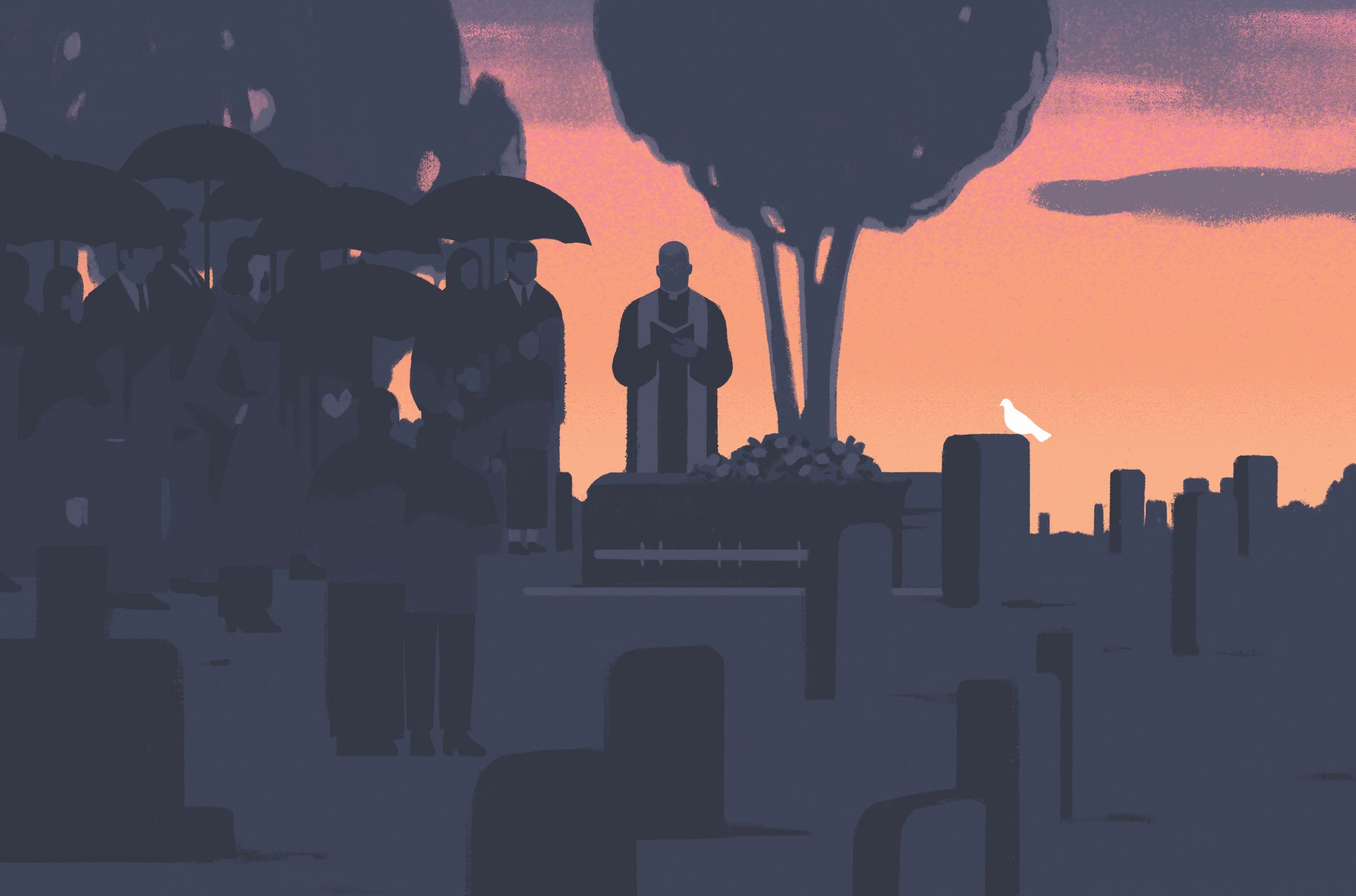




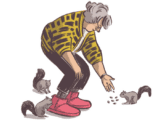



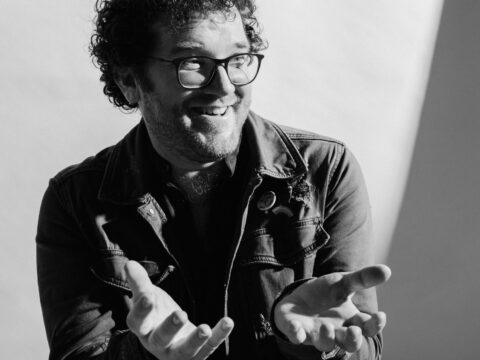
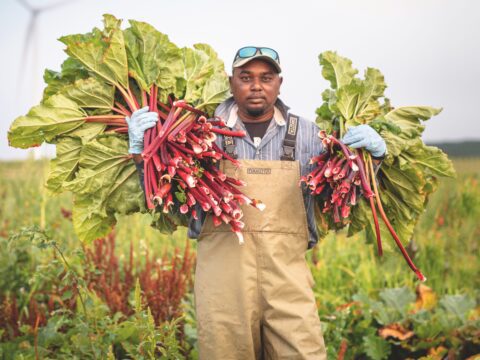
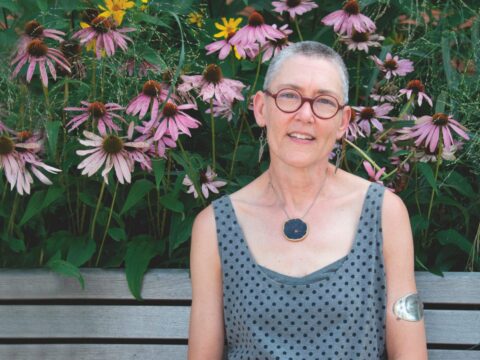
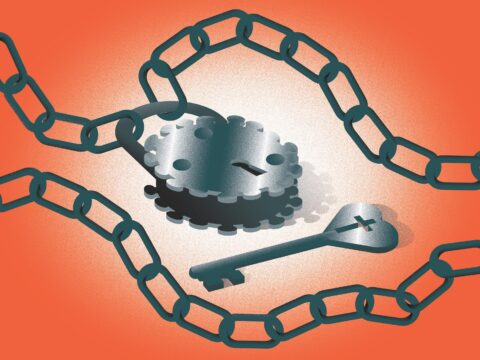

Beautifully written. Thank you to those who shared their stories.